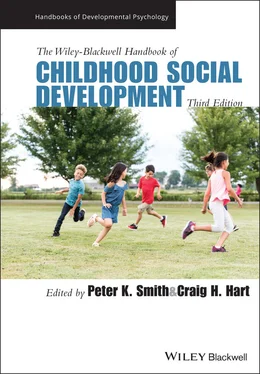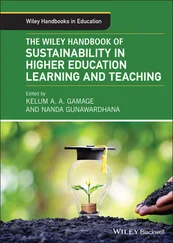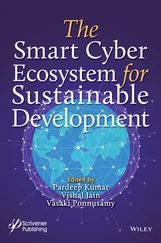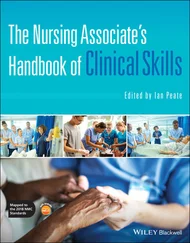5 Bucchianeri, M. M., Eisenberg, M. E., Wall, M, Piran, N., & Neumark‐Sztainer, D. (2014). Multiple types of harassment: Associations with emotional well‐being and unhealthy behaviors in adolescents. Journal of Adolescent Health, 54(6), 724–729.
6 Burns, J. K. (2015). Poverty, inequality and a political economy of mental health. Epidemiology and Psychiatric Sciences, 24(2), 107–113.
7 Chen, X., Bian, Y., Xin, T., Wang, L., & Silbereisen, R. K. (2010). Perceived social change and childrearing attitudes in China. European Psychology, 15(4), 260–270.
8 Conroy, J. C. (2010). The state, parenting, and the populist energies of anxiety. Educational Theory, 60(3), 325–340.
9 Doherty, C., & Dooley, K. (2018). Responsibilising parents: The nudge towards shadow tutoring. British Journal of Sociology of Education, 39(4), 551–566.
10 Ecclestone, K., & Hayes, D. (2009). Changing the subject: the educational implications of developing emotional well‐being. Oxford Review of Education, 35(3), 371–389.
11 Ehenreich, B. (1989). Fear of falling: The inner life of the middle class. Pantheon.
12 Eisenstein, H. (2009). Feminism seduced. How global elites used women’s labor and ideas to exploit the world. Boulder Paradigm.
13 Finch, L., Hargrave, R., Nichols, J., & van Vliet, A. (2014). Measure what you treasure: Well‐being and young people, how it can be measured and what the data tells us. New Philanthropy Capital. http://www.thinknpc.org/publications/measure‐what‐you‐treasure/
14 Fraser, N. (2009). Feminism, capitalism and the cunning of history. New Left Review, 56, 97–117.
15 Furlong, A., & Cartmel, F. (2007). Young people and social change: Individualization and risk in late modernity (2nd ed.). Open University Press.
16 Gillies, V. (2008). Perspectives on parenting responsibility: Contextualizing values and practices. Journal of Law and Society, 35(1), 95–112.
17 Gillies, V., Edwards, R., & Horsley, N. (2016). Brave new brains: Sociology, family and the politics of knowledge. The Sociological Review, 64(2), 219–237.
18 Gregg, P., & Washbrook, E. (2011). The role of attitudes and behaviours in explaining socio‐economic differences in attainment at age 11. Longitudinal and Life Course Studies, 2(1), 41–58.
19 Harkness, S., Raeff, C., & Super, C. M. (Eds.). (2000). Variability in the social construction of the child. (New Directions for Child and Adolescent Development, number 87). Jossey‐Bass.
20 Hartas, D. (2011). Families’ social backgrounds matter: Socio‐economic factors, home learning and young children’s language, literacy and social outcomes. British Educational Research Journal, 37(6), 1469–3518.
21 Hartas, D. (2012). Inequality and the home learning environment: Predictions about seven‐year‐olds’ language and literacy. British Educational Research Journal, 38(5), 859–879.
22 Hartas, D. (2014). Parenting, family policy and children's well‐being in an unequal society: A new culture war for parents. Palgrave Macmillan.
23 Hartas, D. (2019). The social context of adolescent mental health and wellbeing: Parents, friends and social media. Research Papers in Education, 36(5),1–19.
24 Hartas, D. (2020). Young people's play, wellbeing and learning: Psycho‐social and virtual geographies in play. Palgrave Macmillan.
25 Held, V. (2006). The ethics of care: Personal, political, and global. Oxford University Press.
26 Hill, N. E., & Tyson, D. F. (2009). Parental involvement in middle school: A meta‐analytic assessment of the strategies that promote achievement. Developmental Psychology, 45(3), 740–763.
27 Hirsch D. (2009). Ending child poverty in a changing economy. Joseph Rowntree Foundation.
28 Holloway, S. L., & Pimlott‐Wilson, H. (2014). Enriching children, institutionalizing childhood? Geographies of play, extracurricular activities, and parenting in England. Annals of the Association of American Geographers, 104(3), 613–627.
29 Houston, S., & Dolan, P. (2008). Conceptualising child and family support: the contribution of Honneth’s critical theory of recognition. Children & Society, 22(6), 458–469.
30 Hood, A., & Waters, T. (2017). Living standards, poverty and inequality in the UK: 2017–2018 to 2021–2022. Institute for Fiscal Studies.
31 Höppner, G. (2017). Rethinking socialization research through the lens of new materialism. Frontiers in Sociology, 2, 13.
32 JRF Analysis Unit (2017). UK poverty 2017. Joseph Rowntree Foundation. https://www.jrf.org.uk/report/uk‐poverty‐2017
33 Kagitcibasi, C., & Ataca, B. (2005). Value of children and family change: A three‐decade portrait from Turkey. Applied Psychology, 54(3), 317–337.
34 Katz, C. (2008). Childhood as spectacle: Relays of anxiety and the reconfiguration of the child. Cultural Geographies, 15(1), 5–17.
35 Lareau, A. (2002). Invisible inequality: Social class and childrearing in Black and White families. American Sociological Review, 67(5), 747–776.
36 Lareau, A. (2003). Unequal childhoods: Class, race and family life. University of California Press.
37 Lester, S., & Maudsley, M. (2007). Play, naturally. Play England, National Children’s Bureau.
38 Lund, C., Breen, A., Flisher, A. J., Kakuma, R., Corrigall, J., Joska, J. A., Swartz, L., & Patel, V. (2010). Poverty and common mental disorders in low‐ and middle‐income countries: A systematic review. Social Science and Medicine, 71(3), 517–528.
39 Macvarish, J. (2014). Babies’ brains and parenting policy: The insensitive mother. In E. Lee, J. Bristow, C. Faircloth, & J. Macvarish (Eds.), Parenting culture studies (pp. 165–183). Palgrave Macmillan.
40 Marano, H. E. (2004). A nation of wimps. https://www.psychologytoday.com/gb/articles/200411/nation‐wimps
41 Moss, P. (2012). The relationship between early childhood and compulsory education: A properly political question. In P. Moss (Ed.), Early childhood and compulsory education (pp. 10–58). Routledge.
42 Patalay, P., & Fitzsimons, E. (2017). Mental ill‐health among children of the new century: Trends across childhood with a focus on age 14. Centre for Longitudinal Studies.
43 Pellegrini, A. D. (2009). The role of play in human development. Oxford University Press.
44 Raymond, C. M., Giusti, M., & Barthel, S. (2017). An embodied perspective on the co‐production of cultural ecosystem services: Toward embodied ecosystems. Journal of Environmental Planning and Management, 61(5), 778–799.
45 RCPCH (2017). State of child health: Report 2017, Royal College of Paediatrics and Child Health.
46 Rideout, V., Foehr, U., & Roberts, D. (2010). Generation M2: Media in the lives of 8–18 year‐olds. Kaiser Family Foundation. http://www.kff.org/entmedia/upload/8010.pdf
47 Rollins, A., & Hunter, A. G. (2013). Racial socialization of biracial youth: Maternal messages and approaches to address discrimination. Family Relations, 62(1), 140–153.
48 Rose, N. (1999). Powers of freedom: Reframing political thought. Cambridge University Press.
49 Rose, N., & Abi‐Rached, J. M. (2013). Neuro: The new brain sciences and the management of the mind. Princeton University Press.
50 Sandel, M. J. (2004, April). The case against perfection. The Atlantic Monthly.
51 Shaffer, A., Suveg, C., Thomassin, K., & Bradbury, L. L. (2012). Emotion socialization in the context of family risks: Links to child emotion regulation. Journal of Child and Family Studies, 21(6), 917–924.
52 Sen, A. (1999). Development as freedom. Knopf.
53 Vincent, C., & Ball, S. J. (2007). “Making up” the middle‐class child: Families, activities and class dispositions. Sociology, 41(6), 1061–1077.
54 Whitebread, D. (2017). Free play and children’s mental health. The Lancet Child & Adolescent Health, 1(3), 167–169.
Читать дальше












